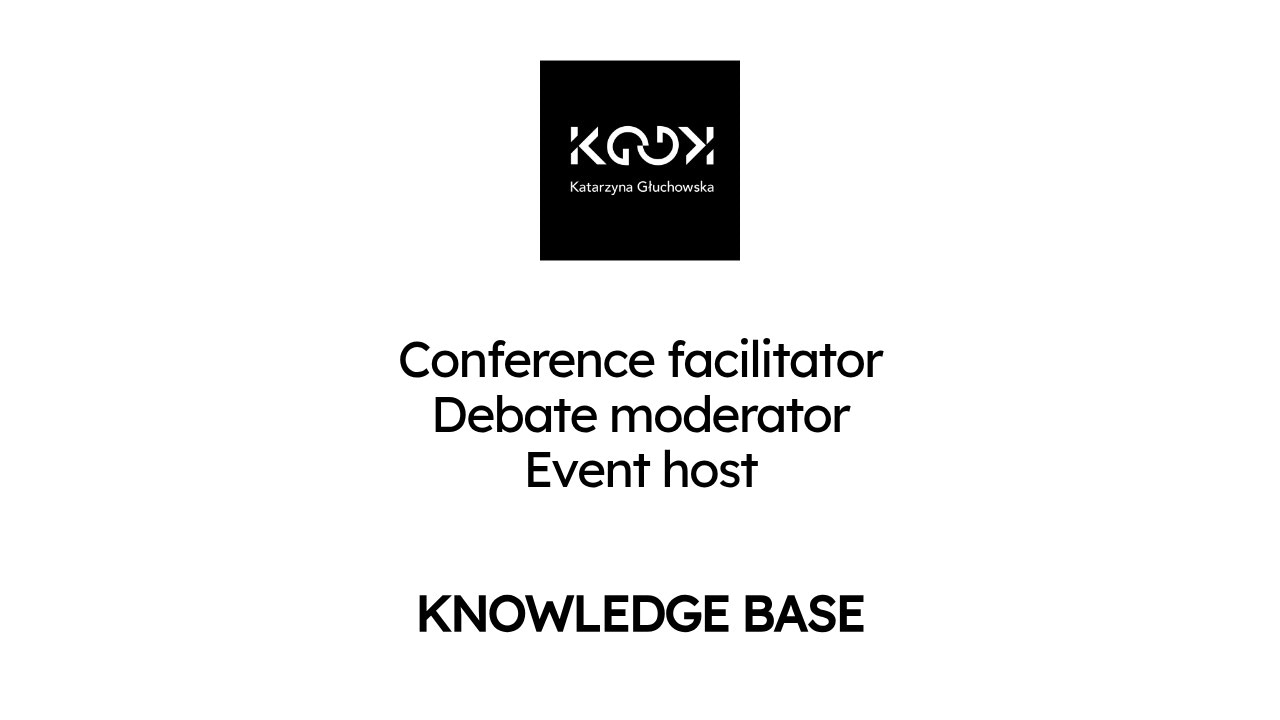Table of contents:
Consecutive Interpreting for the Public Sector in Poland – Role and Significance in International Communication
Consecutive interpreting is a key component in establishing and maintaining international relations within the public sector. In Poland, where the relevance of this service grows alongside intensified cross-border cooperation, specialists such as Katarzyna Głuchowska play an invaluable role in ensuring seamless communication between Polish institutions and their foreign partners.
During official meetings, negotiations or conferences, a consecutive interpreter is responsible for rendering one party’s statements into the other party’s language, usually after the speech or after substantial sections have been delivered. This mode of interpreting demands not only excellent linguistic command but also the ability to quickly absorb, analyse and accurately relay information.
Working as a consecutive interpreter in the public sector also requires a deep understanding of cultural context and subject-matter specifics, guaranteeing that the message remains appropriate. In high-level international debates — such as negotiations on energy policies, trade agreements or security issues — precise interpreting can determine the outcome of the talks.
Because of the pivotal role that consecutive interpreting plays in international communication, choosing an experienced interpreter with the right qualifications and skills is absolutely crucial. Professionals like Katarzyna Głuchowska, whose extensive experience with international organisations and institutions enables all parties to be properly understood, directly contribute to the effectiveness and efficiency of international cooperation.
How to Effectively Host Public-Sector Events with Consecutive Interpreting
Successfully hosting public-sector events that rely on consecutive interpreting requires not only excellent language skills but also the ability to adapt to the specific needs and protocols of governmental institutions. Consecutive interpreting is especially valued for allowing in-depth analysis of the speaker’s content, which is vital during official meetings where every word matters.
When planning a governmental or institutional event that will use this interpreting mode, thorough preparation of both materials and interpreters is essential. Provide the interpreter with all necessary information, including documents and notes that may prove useful during the assignment. It is also crucial to brief the interpreter on the specialised terminology used by the relevant ministry or agency to avoid misunderstandings and errors.
During the event itself, it is important that the conference moderator, such as Katarzyna Głuchowska, manage the time allocated for speeches and interpreting efficiently and encourage participants to ask clarifying questions. This is critical because consecutive interpreting requires the interpreter to have sufficient time to think through and convey the full meaning of each statement.
Another aspect is selecting the right location for the interpreting. With consecutive interpreting the interpreter usually stands or sits next to the speaker, so it is important that all participants have a clear view of both the speaker and the interpreter. This facilitates comprehension and keeps the discussion flowing.
Co-operating with an experienced interpreter who holds appropriate credentials — such as a sworn interpreter’s certificate in English or experience with institutions like the UN, NATO or the EU — guarantees that the interpretations will be delivered with due diligence and professionalism.
In summary, organising events with consecutive interpreting in the public sector demands meticulous preparation, proper coordination and collaboration with qualified specialists to ensure not only effective communication but also its highest quality.
Moderating Debates with Consecutive Interpreting – Best Practices and Challenges
Moderating debates that use consecutive interpreting is a demanding task that requires not only language proficiency but also the ability to manage time and steer the discussion. In the public-sector context, where precision is paramount, consecutive interpreting presents moderators with specific challenges.
During a debate in which each statement is interpreted after it has been delivered, it is essential to maintain the flow of the discussion and to ensure that all participants have equal access to the information being shared. The moderator must therefore plan the time allotted to each speech carefully to account for the interpreter’s time as well. Balancing the need for sufficient interpreting time with the desire to keep the debate dynamic is one of the greatest challenges in this context.
Additionally, a debate moderator working with consecutive interpreting must demonstrate exceptional listening skills and an understanding of both the speakers and the interpreters. This is necessary to intervene effectively when ambiguities arise or to adjust the order of contributions to better serve the debate’s progression. The moderator must also be able to react swiftly to any communication issues that may occur while the statements are being interpreted.
The long-standing experience of Katarzyna Głuchowska as a debate moderator with consecutive interpreting for governmental institutions, including her ability to lead high-level diplomatic conversations, exemplifies the professionalism that ensures smooth and effective communication during such events. Her language skills and debate-leading competences are invaluable for delivering high-quality consecutive interpreting for the public sector in Poland.
If you would like to learn more, click here: https://katarzynagluchowska.pl/en/
